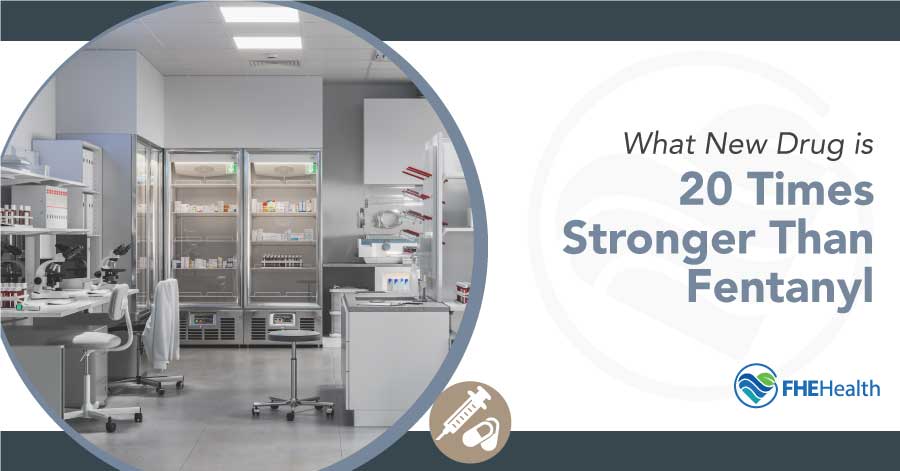
The United States is still going through an opioid epidemic that’s seen many transformations. What started as an opioid prescription drug issue transitioned to increased use of substances like heroin and synthetic opioids like fentanyl. Now, there’s a new drug on the streets that’s taking over.
According to the DEA, a new drug called ISO has appeared on the streets of Miami and is quickly wreaking havoc on communities. ISO started appearing in April 2019 and is reportedly 20 times stronger than fentanyl. It’s also estimated to be 60 times stronger than morphine.
By August 2020, at least 49 drug fatalities in the United States had been linked to ISO since its appearance on the black drug market. This new synthetic drug in Miami is so strong that the potential impact on communities is terrifying.
Keep reading for your complete guide to this new drug ISO, what it looks like and the dangers it imposes.
What Is the New Drug in Miami Called ISO?
So, what is this new drug in Florida? ISO is an abbreviated name for isotonitazene, an incredibly potent synthetic drug that’s a derivative of etonitazene. ISO is a white or yellow powder that can be mixed with other substances and can be absorbed by skin contact, inhaled or ingested.
In recent years, fentanyl has become harder to come by on the drug market. This is partially due to China banning fentanyl production in August 2019 after increasing demands from the U.S. In response to the insufficient supply, ISO appeared on the market to keep up with opioid demand.
ISO has been around for a while. It was developed by pharmaceutical companies in the 1950s for pain management. However, it’s rarely used in the medical sense as it’s dangerously potent and comes with many high-risk side effects. In fact, the World Health Organization never approved the drug for marketing due to the high risk of respiratory failure.
Unfortunately, that hasn’t stopped the production of ISO. The ISO appearing on the streets right now is even more dangerous because it’s not made in monitored and regulated laboratories and is instead made on the black market.
Dangers of This New Drug
As mentioned above, ISO is incredibly potent and 20 times stronger than fentanyl. U.S. News & World Report recently reported that ISO is causing between 40-50 overdose deaths per month in the United States. This is a drastic increase from the previously reported six overdose deaths per month in the summer of 2019.
It’s clear that its potency makes this drug more and more popular on the streets. This is a concerning trend, especially considering the number of overdose deaths fentanyl has caused over the last few years. If ISO replaces fentanyl for most addicts, it likely means overdose fatalities will skyrocket.
The people most likely to abuse ISO are the same population using prescription opioids, heroin, fentanyl, tramadol and other synthetic opioid substances.
The possible side effects of ISO include respiratory failure, nausea, vomiting, overdose and death.
Another potentially concerning impact of this new drug is that it sometimes doesn’t show up on drug test strips. Drug users are trying to protect themselves by using these test strips to check their substances for the presence of fentanyl. Unfortunately, as ISO isn’t a widely used opioid (yet), the strips haven’t been manufactured to detect this dangerous new substance. Individuals who are careful to test their drugs may consume them thinking they’re safe, not knowing the drug has ISO in it. ISO is already being found cut into drugs like cocaine, so this is a very real concern.
ISO isn’t detected in routine toxicology tests, so there’s a possibility its misuse and negative impact could already be underreported.
Lastly, an additional danger of ISO is how it responds to the life-saving drug naloxone. While naloxone is effective against ISO, it can require several doses to be effective. This increases the danger for users as friends or first responders may not have enough naloxone on hand when an emergency happens.
What Does This Drug Look Like?
ISO can come as crystals or as a yellow or white substance that can be mixed into other drugs (like cocaine and heroin) or crushed into tablets.
Initially, the DEA didn’t list ISO on its list of controlled substances. This made tracking overdoses and fatalities associated with the substance hard to track. Recently, in response to the increasing presence of the drug on the streets, the DEA has reclassified the potent synthetic opioid as a Schedule 1 drug with a high risk of abuse by users. This classification was determined as ISO is similar to other Schedule 1 drugs like fentanyl and morphine. A Schedule 1 drug is highly likely to lead to abuse.
Can You Be Addicted to ISO?
With ISO joining the ranks of the newest street drugs, many are asking if ISO is addictive. Yes, ISO is highly addictive because it’s an opioid. Those looking to get help for ISO addiction can benefit from professional rehabilitation programs that offer medicated withdrawal and addiction therapy.
But the danger goes beyond addiction to health concerns, overdose and death. It’s also extremely dangerous because ISO is highly likely to be mixed with other medications. Individuals may not know they’re taking a drug mixed with ISO, and when taking a dosage they’re used to, they unknowingly put themselves in grave danger.
Getting Help at FHE Health
If you or someone you know is dealing with drug addiction and doesn’t want to take on the risk of ISO, it’s time to consider professional help. FHE Health has been helping people with addiction treatment for years, using a combination of evidence-based clinical practices and cutting-edge technology. Contact us today to find out how we can help by calling (833) 596-3502.






